#health at any size
Text
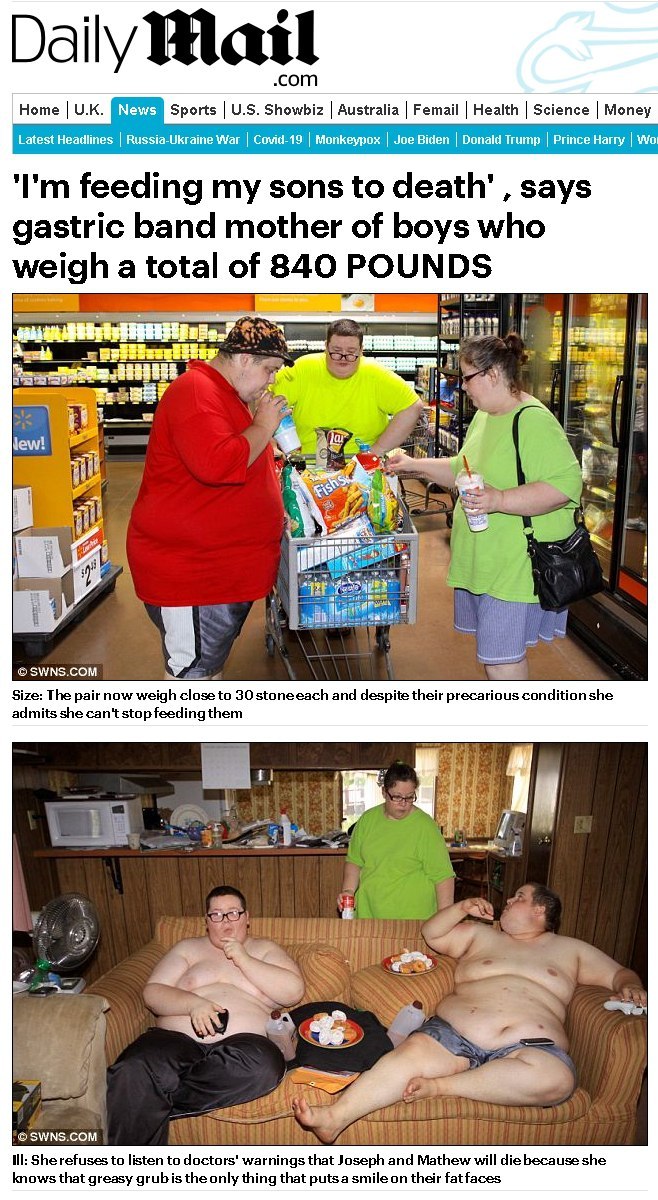
#anti fat acceptance#anti fat activism#obesity epidemic#anti obesity#anti health at every size#weight loss#health at any size#lose weight#motivation#fatspo
159 notes
·
View notes
Text
When some rando justifies fatphobia with "we're just concerned about your health" like why does some smoking drinking no exercising doordashing fast food 5 times a week dehydrated ass fucker think they're the expert on health just cause they got Skinny Genetics and a high metabolism
329 notes
·
View notes
Text
Part of maturing is realizing you cannot continue to feed yourself the same processed garbage you had as a child. Things like snack cakes and cookies and processed artificial meals will ruin your health. You are not a child anymore, do not eat like one. You have control over what you put in your body. 🤍
#inspired by so many posts about ‘macaroni and chicken nugget dates’ and such#full grown adults gorging themselves on high fructose corn syrup gummy snacks and calling it a balanced meal#‘I only eat a little bit every day and I’m still morbidly obese so obviously it’s genetics’#no it’s because you feed yourself sugar and syrup by the gallon#divine feminine#glow up#divine female#self care#radical self love#angel energy#dream girl#feminine energy#angelcore#princess aesthetic#fat belly#fat activism#fat acceptance#health at every size#health at any size
25 notes
·
View notes
Text

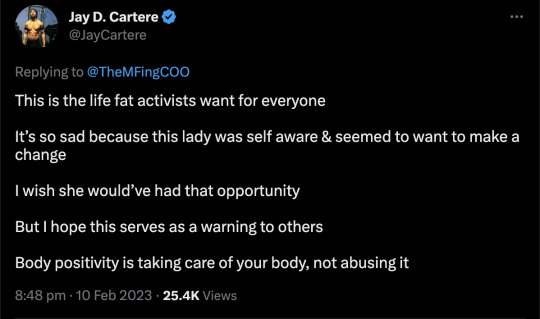
I ruined my life with food. Binge-eating and lack of self-care, and I'm hoping that it's not too late for me this time.
I ain't been to the store in two years, maybe more now, I guess. I went to the post office once and that was hard.
I went to urgent care, and I thought my legs were gonna give out from under me, because I had to stand there the entire time after walking in. I kept just looking back at the chair and just praying that I could just make it another second until she was done with me.
I couldn't even probably check the mail right now.
I'm out of breath constantly. I wish I knew the cost of eating. I wish I knew the cost of the comfort at the time that I was seeking.
And I just want this to be a warning to other people that just need to hear the hard truth. That if you keep it up, that if you keep gaining and not taking care of yourself and moving around and doing what you need to do, your health is going to decline, possibly. This has been my experience.
My health's declined, I do what I need to do to take care of my husband and stuff still, and I make things work, and I can do the things that I need to do, bu they're very, very hard.
I had to have help trimming my toenails the other day, because I felt so out of breath trying to lean over and do my toes.
There's just a lot that it's taken away from me. And I want you to know that it's not worth it. It's not worth your life. I really hope that I can turn it around this time, because it's... it's really scary how bad things can get.
She saw what was coming, but it was too late.
You can't change reality by lying about it, least of all to yourself.
Learn from others' mistakes.
#fat activism#fat studies#fatphobia#ableism#health at any size#fat acceptance#health problems#overweight#obesity#body positivity#biology denial#religion is a mental illness
34 notes
·
View notes
Text
found this video very helpful for explaining HAES 😀
youtube
let's acknowledge and fight against weight stigma especially in the medical industry! 💪
#feedee perspective#ffa#female feeder#wg kink#belly kink#feeder kink#getting fatter#health at every size#health at any size#haes#body positivity#Youtube
32 notes
·
View notes
Text


More thankful than ever these days…
What a wonderful life when you’re happy in your own skin. Is life perfect? Hell no. I have loose skin. I have imperfections. I still have problems. But, I’m happy ya’ll.
Like… really happy. 💞✨
And all I wish is the same for all of you.
I hope you’re all having a fantastic weekend!
#fitblr#health#health & fitness#healthylifestyle#weightloss#longtermweightloss#obesity#healthytips#wlsprogress#losing weight#wlsfamily#weight loss family#weight loss community#weight loss help#plus size fitness#health at any size#nutition#weightlosswarrior#weight loss transformation#wlstransformation#before and during#before and now#before and current#tbt#throwback#fbf#weight loss before and after#weight loss before and now#lose#lose weight
14 notes
·
View notes
Text
youtube
#fat#fat activism#fat acceptance#activism#health at any size#health at every size#haes#body issue#body issues#body insecurities#body image#body acceptance#body positivity#body positive#science#bmi calculator#obese#obesity#health#recovery#eating disorder#disordered eating#eating disorder recovery#ed recovery#recover#fitness#healthy eating#mental health#eating disorders#diet
1 note
·
View note
Text


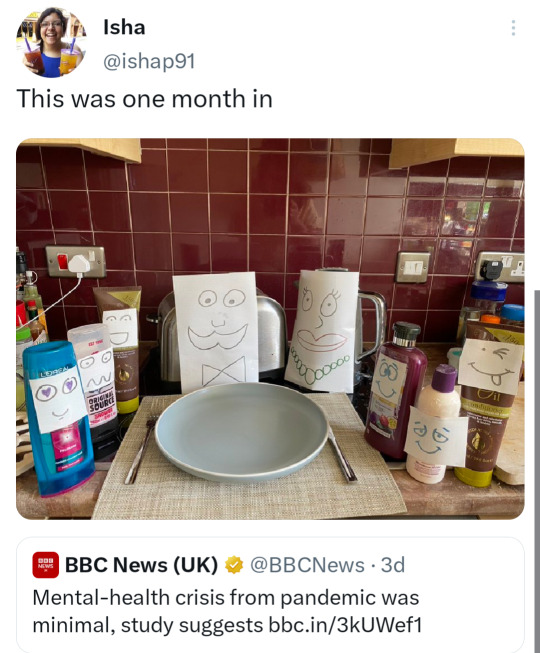

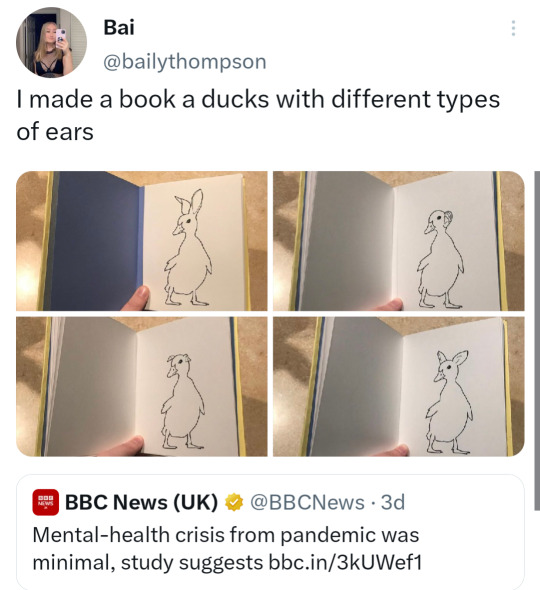



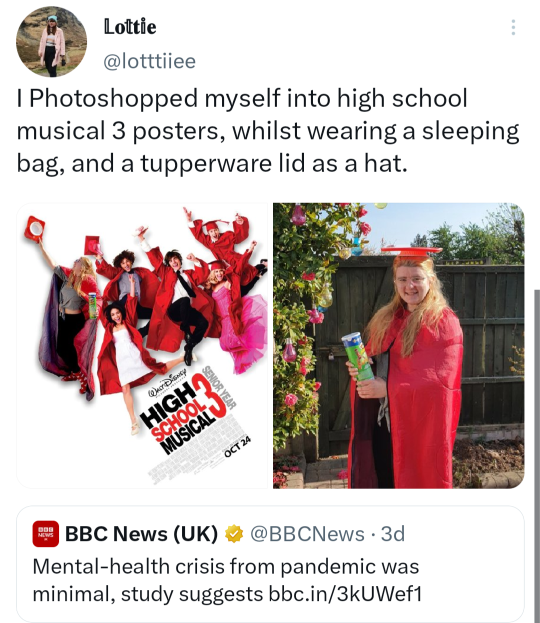

#bbc news uk#bbc news#covid 19#coronavirus#mental health#apparently they just didn't interview any poor or vulnerable people or any service workers????#they just interviewed celebrities in their mansions I guess#'yeah it was fine I just stayed in my 18-bedroom house and swam in my olypmic-sized pool every day'
1K notes
·
View notes
Text
"The “Düsseldorf Patient”, a man now aged 53, is just the third person worldwide to have been completely cured of HIV via stem cell transplantation.
As in the case of the other two patients, the so-called “Berlin Patient” and “London Patient,” the transplantation was undertaken to treat an acute blood disease, which had developed in addition to the HIV infection.
The Düsseldorf Patient received a stem cell transplant used to treat leukemia in 2013 and has shown persistent suppression of HIV-1 ever since, including during the last 4 years after the patient stopped taking anti-retroviral medication.
“I still remember very well the sentence from my family doctor: ‘don’t take it so hard,'” the Düsseldorf Patient, who had leukemia as well as HIV-1, said in a statement. “‘We will experience together that HIV can be cured!’ At the time, I dismissed the statement.”
Allogeneic hematopoietic stem cell transplantation (HSCT) is a procedure used to treat certain cancers, such as leukemia, by transferring immature blood cells from a donor to repopulate the bone marrow of the recipient.
Scientists now understand that individuals with two copies of the Δ32 mutation in the gene for the HIV-1 co-receptor CCR5; are resistant to HIV-1 infection. The two previous cases of both the London patient and the Berlin patient involved receiving a stem cell transplant from a donor with these unique mutations.
Björn-Erik Jensen, a specialist in infectious diseases at Düsseldorf University Hospital, lead the treatment and subsequent research, revealed today in a peer-reviewed study in Nature.
The patient was diagnosed as having acute myeloid leukemia and proceeded to undergo transplantation of stem cells from a female donor in 2013, followed by chemotherapy and infusions of donor lymphocytes.
After the transplantation, anti-retroviral therapy was continued, but HIV was undetectable in the patient’s blood cells. Anti-retroviral therapy was suspended in November 2018 with the patient’s informed consent, almost 6 years after the stem cell transplantation, to determine whether the virus persisted in the patient.
“I very much hope that these doctors will now get even more attention for their work,” said the patient. “I have now decided to give up some of my private life to support research fundraising. And of course, it will also stay very important for me to fight the stigmatization of HIV with my story.”
The authors conclude that although HSCT remains a high-risk procedure that is at present an option only for some people living with both HIV-1 and hematological cancers, these results may inform future strategies for achieving long-term remission of HIV-1."
-via Good News Network, 2/20/23
VERIFIED 10 YEARS ON, PROOF THAT HIV IS CURABLE
#hiv#health care#hiv aids#aids epidemic#aids crisis#lgbtq#lgbtq history#queer#queer history#hiv treatment#sex ed#medical news#medical research#good news#hope#I know he's not the first person we found cured of hiv#but as they say#three is a pattern#ANY increase in sample size at this stage is absolutely historical
398 notes
·
View notes
Text
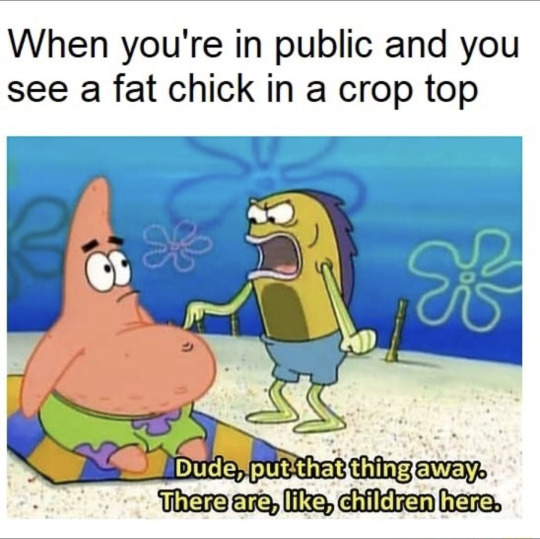
#anti fat acceptance#anti fat activism#obesity epidemic#weight loss#health at any size#motivation#fatspo#fat acceptance#health at every size#morbid obesity
153 notes
·
View notes
Photo
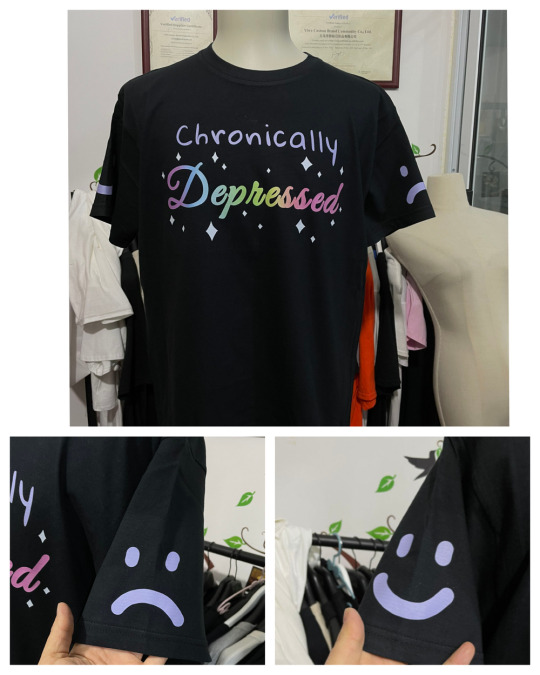
♡ Chronically Depressed Tee (S-3XL) by Midnight Springs ♡
#before yall @ me the creator is chronically ill and i dont wanna hear any 'romanticizing' arguments research menhera and just block me idgaf#menhera#spoonie#chronically ill#mental health awareness#cute#kawaii#shirt#tee#tshirt#t-shirt#plus size friendly#plus size#fatshion#kawaii fatshion#fashion blog#shopping blog#queer owned business#midnightsprings#midnight springs#under 50
206 notes
·
View notes
Text



A few little sketches of some possible school uniforms for mage schools/learning centers for magic/etc. :0c Though because Nanyevimi is so scattered and disconnected, it'd actually vary much more by region (like not everywhere would have a cultural concept of what a suit jacket or neck tie looks like lol), so it's probably unrealistic for so many of them to follow too many traditional Uniform Conventions from cultures in our world, etc. But, still, fun to mess around with designs, and think about which would be most fun to wear/what school you'd go to just based off the clothing lol~
#I haven't felt well enough to do anything actually productive lately GRRRR.. evil health issues....#but I can sometimes at least draw while I lay on the floor with a heating pad and etc. lol.. so...#goofy little sketches. Still dislike that the ipad thing someone gave me is either like.. maybe the settings are just off OR possibly the#screen is slightly broken in some regard - so the pressure sensitivity does not work at all. thus all lines are blunt looking#instead of having tapered edges. which I KNOW can be a stylistic thing. like I think it's fine mostly#but sometimes shading looks weird for all of the lines to be the exact same size/width with like no variation lol#though since it's just little sketches it doesnt matter lol but still... hrmm... ever working out my strategy for how to use the ipad for a#art things/if I can ever get used to it/etc.#AAANYWAY... still so uniform obsessed.. and have been since I was a child. Like way before going to middle school and meeting#the people who like anime and get into school uniforms of that variety. I mean like... age 7 before even having any friends#and having zero popular media interests or outside influences that would make uniforms Trendy. but I would see like a 'private school#uniform' on a new story on tv or something or in a book and was just like OUGH... I Should Dress That Way#I used to go to thrift stores and find multiple seperate pieces that could be combined together to look like a school uniform#I had like 4 or 5 different 'uniforms' that I made myself in that way. My first outfit that I was ever allowed#to pick out for myself as my big First Day Of Middle School outfit was literally like school uniform inspired#(maybe mixed with a little goth.. like it was a school uniform sort of look but black and white with fishnet armwarmers lol.. plaid +#stripes pattern mixing my beloved... )#I think it's just the same way that I love apartment buildings because I'm infinitely fascinated with like.. observing human nature and peo#le displaying their psersonalities in little ways and how you can give 10 people the same exact identical space but each one will decorate#it completely differently just depending on their own tastes and reasonnig and etc. I love the idea of everyone in some setting#having to be in one specific set outfit BUT you can tell something about them by the little ways they customize it or what type#of accessories they wear or if they choose to button their shirt fully or not or etc. etc. I like the constraints of 'okay everyone has to#be in exactly the same uniform - NOW. give them their own unique style somehow despite this' etc. etc. like#yaaaayyyy.. I love thinking of little obscure details that convey personality. they have a little pin hidden on the inside of their#hat. their shoes are just like everyone else's but more worn out. they have a necklace barely visible beneath their collar. their tie is#always a little more askew that everyone elses. or even. the uniform is EXACTLY on model entirely clean crisp pristine not a single element#customized or out of place - which STILL tells you something about them. etc. etc.#ANYWAY.. yeahg.. struggling to get anything done these last few weeks so.. blam. poof. alakazaam. scratchy little sketches#of nothing very productive or relating to any other project in particular be upon ye
22 notes
·
View notes
Text

The fat body has long been a site of medical surveillance, and this has not changed during the COVID-19 pandemic. Early research focused on linking fatness with more severe disease outcomes, yet many have questioned the strength of this association, including within the pages of this journal.
Fat communities, such as the National Association to Advance Fat Acceptance (NAAFA), have contested society’s stubborn generalizations that associate fatness with disease and poor health outcomes, and push back against the assumption that fat people have little regard for themselves or their own well-being. They argue that thinking about obesity as a disease or medical risk (such as for severe COVID-19) contributes to stigma because it positions larger bodies as drains on an already-taxed health care system.
The NAAFA mobilizes the term “fat” in its fight against weight discrimination and fatphobia in all aspects of life, including in employment, health care and education. Similarly, as social scientists, we use the term “fat” rather than the deeply problematic medical term, “obesity,” which causes harm to people under the guise of benign objectivity. Categories can shape how individuals view themselves, as philosopher Ian Hacking has argued; they reinforce judgments about people who do not conform to a norm. Thus, “obesity” is not merely a statistical category, but is rather an evaluation about what constitutes an ideal weight. To “fatten” a category, Mollow and McRuer explain, “means examining it through the lenses of fat studies and the fat justice movement.”
Scholars of fat studies understand fatness as a way of thinking about bodily diversity. This literature maintains that fatness should be uncoupled from pathology, as such framings attach fatness to a sense of moral weakness and failed citizenship, and can fuel stigma in various settings, even health care. Such an uncoupling is increasingly supported by medical and population health research, which suggests that people who are labelled obese are not necessarily unhealthy.
There's a really weird intersection between people who want to shame and scold anti-vaxers - whether COVID or MMR - over "the science," and those who want to celebreate obesity, and deny or outright lie about "the science" and the health impacts of obesity because recognizing scientific reality is "shaming."
Not everything needs to be "destimatized." That doesn't mean people need to be actively harassed. But anti-science, denial of basic human biology, and rejection of objective reality don't need to be "normalized," nor do we need to pretend there are no consequences, no human or financial cost, just because some people prefer to hear a comforting lie over a painful truth. Any more than Flat Earth needs to be "normalized."
People who are obese know they're obese. They carry the awareness and the guilt. And in some cases, it's a symptom of a larger problem, particularly mental health issues, resulting in a feedback loop. "Normalizing" obesity is like normalizing alcoholism. It doesn't help the person, and it hurts them by encouraging them to stay stuck, encouraging the lie that they don't deserve better.
You “empower” people by telling them the truth.
-- The Stoic Emperor
--
"Fat Studies" is a real - in the sense it exists, not the sense that it's intellectually or academically legitimate - field in the same hypothetical Humanities that houses the other bogus grievance-based "Studies" fields. As with Queer Theory, it spun off directly from Feminist Theory, and closely parallels Disability Studies in asking why we think it's a good idea for bodies to work and people to live long healthy lives without the deleterious effects of excess weight on the body.
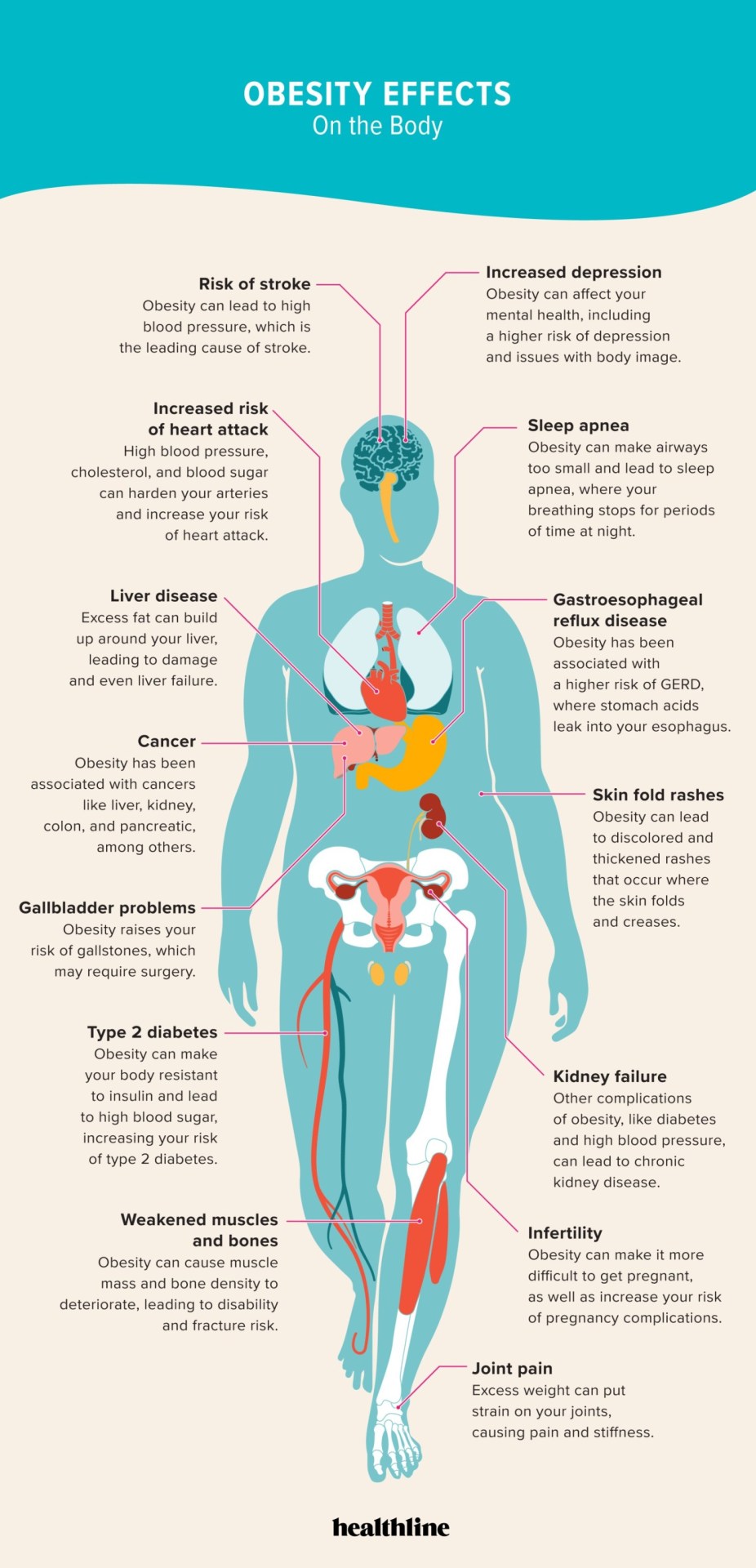
It has decided that the only reason people are concerned about obesity is a hatred of fat people, and a worship of an "ideology" it dubs "healthism." Apparently, not being chronically unwell is an ideology.
Health-ism is a belief system that sees health as the property and responsibility of an individual and ranks the personal pursuit of health above everything else, like world peace or being kind. [..] Health-ism judges people’s human worth according to their health.
-- Lucy Aphramor, "What is Health-ism"
One supposes that Ms. Aphramor is projecting her guilt in the creation of such hyperbole.
youtube
Let's take a look at excerpts from "The Fat Studies Reader," by Esther RothBlum and Sondra Solovay (TOR).
"As a new, interdisciplinary field of intellectual inquiry, fat studies is defined in part by what it is not.
For example, if you believe that fat people could (and should) lose weight, then you are not doing fat studies—you are part of the $58.6 billion-per-year weight-loss industry or its vast customer base (Marketdata Enterprises, 2007).
If you believe that being fat is a disease and that fat people cannot possibly enjoy good health or long life, then you are not doing fat studies. Instead, your approach is aligned with “obesity” researchers, bariatric surgeons, public health officials who declare “war on obesity” (Koop, 1997), and the medico-pharmaceutical industrial complex that profits from dangerous attempts to “cure” people of bodily difference (more on “obesity” later).
If you believe that thin is inherently beautiful and fat is obviously ugly, then you are not doing fat studies work either. You are instead in the realm of advertising, popular media, or the more derivative types of visual art—in other words, propaganda."
"If you live in, and believe in, an objective reality, you're not doing Fat Studies."
"American culture is engaged in a pervasive witch hunt targeting fatness and fat people (a project that is rapidly being exported worldwide). Although this urge to eradicate fat people continues, it is not only challenging to be fat, but also especially challenging to question any aspect of the witch hunt on fat people (not that it is so very comfortable to be thin during a weight-based witch hunt)."
A "witch hunt," and yet shaming Rebel Wilson, Adele, Jennifer Hudson and Melissa McCarthy for their "betrayal" - their word, confirming an ideological motive - for losing weight is what's socially acceptable. As is usually the case with Critical Social Justice ideologies, this victimhood posture comes from those who hold systemic influence.
"I can definitely relate to feeling betrayed when celebrities do that," [...] "My initial gut reaction is that it almost feels like a hero is no longer a hero," [..] "I was like, 'I love her. She looks like me,'" Baker recalls. Now, she says, "It hurts."
Imagine someone saying this about Adele gaining weight, and then consider who is really conducting the "witch hunt".
The language being deployed here is deliberate: "this urge to eradicate fat people" makes people think of Auschwitz or firing squads or the like, when it means no such thing. It's a postmodernist strategy to adopt attributes as "identity" and then cry "eradication" or "genocide" when they're not needed any more. People leaving Islam is framed as "cultural genocide," although people leaving Xianity is not framed the same way. Helping babies to hear is "cultural genocide" or some kind of bigotry.
We're seeing the same thing at the moment with Queer Theory. Those who subscribe to Gender Ideology oppose exploratory therapy, and demand unquestioned affirmation of a child's internet self-diagnosis. To ask a child why they think they might be "trans" and to figure out what might be the cause(s) - typically, homosexuality, autism, social issues, depression, or regular everyday gender non-conformance - is framed as "Conversion Therapy." Because it means the child might find a more useful, accurate diagnosis and abandon "trans" as a self-diagnosis (identity). As if it's comparable to attaching gay men and women to electrodes and electrocuting them if they don't respond to the opposite sex, dunking them in ice water, or cloistering them away and bombarding them with religious dogma until they conform.
"[The Fat Underground] viewed the effort to eradicate fat people via weight loss as a form of genocide perpetrated by the medical profession. The Fat Underground was influenced both by feminism and by radical therapy, a type of treatment that put the focus of change on society, not on individuals. In the words of Gudrun Fonfa, “By refuting the dogma of the diet industry and rejecting the aesthetics of the patriarchal culture, [we made] activists out of each individual fat woman who liberated herself from a lifetime of humiliation” (Fishman, 2008)."
"The problem is not that I'm overweight, it's that you're not celebrating me." They're totally serious in calling it "genocide" when obese people lose weight and reduce the likelihood of obesity-related health issues. Such as death.
"But to uphold the rigor of the scientific convention limits engagement with meaning making: language is not a neutral tool but rather a powerfully charged political vector. The words that we use here influence our ability to generate possibilities (Lorde, 1984). Rather than locate our writing in the culture of positivism by choosing a relatively static scientific discourse, we have instead chosen to engage poetry as a way of “crafting a praxis-oriented culture” and troubling the status quo (Dorazio- Migliore, Migliore, & Anderson, 2005). In welcoming subordinated poetic voices, around which we have arranged our chapter, we deliberately reject the certainty of positivism (as well as the privilege that it affords us) and plump for a more unruly interface with our readers. We hope that this style presents dominant theories as indefinite, negotiable, situated, and open to query."
"Being limited to reality is confining when you want to invent and promote ideological nonsense, so we're here to convince you that it would be close minded not to consider poetry to be just as legitimate as science."
"In valuing feminist epistemologies the authors acknowledge, as Leahy writes, “that women’s experiences and knowledge have often been marginalized or ignored, often at great cost” (Leahy, 2001, p. 39). Of course, in foregrounding gender we do not wish to obscure axes of ideological bias related to class, race, sexuality identity, age, or disability. Our hope is that this chapter encourages more dietetic theorists and practitioners to take up the notion of a socially integrated feminist science for dietitians, one that refuses to disappear feminist discourses on fat."
That is, science doesn't echo feminist dogma sufficiently. The document actually describes science as: "a masculinist science that purports to be impartial and, denying the interweaving of science with society, sustains dietetics as socially disintegrated and nonfeminist." And therefore proposes an ideologically motivated parallel domain - "feminist science" - that does.
"If Fat Studies scholarship is in its infancy within the United States, it is practically fetal in the United Kingdom, but this may be changing. September 2007 heralds “Bodies of Evidence: Fat Across Disciplines,” an interdisciplinary and international conference at the University of Cambridge’s Centre for Research in the Arts, Social Sciences, and Humanities (CRASSH). This conference seeks to “examine the obese body as a case study of both the contested nature of evidence and as a site for the construction of interdisciplinary evidence and problem-solving” (2007)."
Zero medical, biological or health scientists. English majors writing pretentious screeds about obesity.
Finnish researcher Harjunen clarifies the need for increased cross-cultural understanding:
I do realise that we non-American activists need to bring this issue up. For example the case of health care is very different in the Nordic countries and UK (I mean that it is universal, you are not denied access to medical care because of the weight as in the insurance-based systems), weight loss surgeries are almost non-existent here, but so are services for fat people, as well as the discussion about the politics of fat unfortunately. People believe in medicine, so-called health experts and public health campaigns almost blindly. My doctoral dissertation on fatness will be the first one in this country that comes from the field of social sciences not medicine or health sciences. (e-mail correspondence, 3 May 2006)
"Listen to politically-motivated ideologues with unfalsifiable postmodern hypotheses, instead of those whose work is open to scientific scrutiny."
"If we follow the normal procedures of science, we need to show that there is evidence for our hypothesis before assuming it is true. But in real life, scientific consensus also occurs because a priori assumptions are so seamless that they are not questioned.
One of the a priori assumptions that does not seem to require evidence is the idea that being fat is unhealthy.
[..]
Because people in our culture, including physicians, subscribe so religiously to these assumptions, they have not been subjected to adequate scientific testing."
"Having already rejected science as being legitimate, we'll now pretend to 'correctly' apply science, despite not having any science background, after first baselessly asserting that all science is just 'religiously' supported by 'assumptions,' and claiming no evidence or testing whatsoever exists for the decades of research into obesity."
Obesity is just assumed to be unhealthy. For no reason other than bigotry and oppression.
Xianity does the same thing when they ramble about the laws of thermodynamics and that no evidence exists to support evolution. Or when they call atheism a "religion" or that it requires more "faith."
"If fatness causes health problems, why does it not show up in all fat people? Why do those same health problems show up in thin people? Why do the diseases attributed to higher BMI seem to also be characterizable as diseases of aging or chronic stress?"
"What are statistics and how do they work? I wouldn't know, because my field doesn't use data."
"Like other forms of mother blame, mother blaming in the context of the “obesity epidemic” is as much or more about social anxieties regarding the changing role of women, as well as the changing racial and ethnic composition of the nation, than it is about any real public health “crisis.” Like the social construction of the “obesity epidemic” in general, the blaming of mothers for their kids’ “excess” weight draws attention away from very real structural inequalities in health care, education, and employment that are often felt hardest by women and minorities.
[..]
Given the function of the “obesity epidemic” to draw attention away from structural inequality, as well as the ways in which mother blame for childhood “obesity” ties in with other forms of mother blame, one would think that feminists would have taken up the issue of fat rights in the same way they have championed reproductive rights, the rights of working women, and the rights of children. I argue, however, that a general cultural acceptance of the “fat = unhealthy” equation, along with a larger societal fat phobia, in part explains why the “obesity epidemic” is only now beginning to be critically deconstructed by mainstream feminism and social science. This situation strongly makes the case for an interdisciplinary field of fat studies in which scholars and activists can consider the increasing intertwining of sexism, homophobia, racism, classism, and fat phobia, among other issues."
"Pointing out that your kids are overweight is really about hiding racism, sexism and homophobia... somehow."
"That fat and queer people would heartily embrace science and medicine as a solution to their socially constructed problems is redolent of Stockholm syndrome—after all, science and medicine have long been instrumental in oppressing fat and queer people, providing argument after argument that pathologize the homosexual or “obese” individual (whether the mind or the body). Michel Foucault’s work (1980) has shown us that placing bodies under the microscope of science, in the name of liberal projects of self-improvement, in fact reinscribes their deviance and increases their oppression."
The paper simply continues to assert that obesity is a "socially-constructed problem" invented by science and indirectly - through the use of the Stockholm syndrome comparison - invokes False Consciousness, a Marxian concept whereby "oppressed" groups internalize and reproduce the same assertions their "oppressors" use to "oppress" them. The inclusion of language about homosexuality is no accident - Fat Studies regards obese people as being comparable to homosexuals, and insists that messaging relating to obesity and health problems is based entirely on bigotry, and that encouragement to lose weight and get healthy is comparable to insisting gay people should just try to have heterosexual sex (making gay people straight is, by the way, now a crusade of Queer Theorists).
"If you believe that being fat is a disease and that fat people cannot possibly enjoy good health or long life, then you are not doing fat studies. Instead, your approach is aligned with “obesity” researchers, bariatric surgeons, public health officials who de- clare “war on obesity” (Koop, 1997), and the medico-pharmaceutical industrial com- plex that profits from dangerous attempts to “cure” people of bodily difference (more on “obesity” later)."
"We're going to deliberately ignore that weight loss can be achieved inexpensively by making lifestyle changes, such as increasing exercise, reducing caloric intake, reducing portion size and making substitutions, and instead paint concern over obesity as a giant corporate conspiracy and grab for money, blamed on 'Obesity, Inc.,' a parallel to the 'Big Pharma' railed against by anti-vaxers. And just as anti-vaxers ignore 'Big Placebo,' the multi-billion dollar 'alternative medicine' industry, we're going to conveniently ignore the multi-billion dollar industries that promote fast foods, comfort foods and sedentary lifestyles."
"In 2016, the aggregate medical cost due to obesity among adults in the United States was $260.6 billion."
At least "2.8 million people [die] each year as a result of being overweight or obese." In the last three years of the COVID pandemic, there have been 6.6 million deaths attributed to/caused by the virus. This means that as an average over the three years of COVID, obesity is still outpacing COVID deaths.
One of the strongest contributing factors to death resulting from COVID from those under 65 was obesity, but hardly anyone talked about it, at the risk of being scolded about "fat-shaming." The typical activist tactic was, "well this fit, 30 year old runner died of COVID, so I don't have to know what 'contributing factors' means". But ignoring it didn't change that it was there.
Doctors are even being told not to weigh patients, in case they find it "shaming." Which is nothing but denial. Whether you're weighed by the doctor or not doesn't change your weight - you're just refusing to know or acknowledge it.
This, then...

... functions the same as this.

The final word I'll leave to the Fat Studies scholars. This vacuous word salad, again from the Fat Studies Reader, merges crazy from across the social justice spectrum into one rambling, incoherent paragraph of pseudo-intellectual nonsense. We shouldn't be using these people's ideas to guide society.
Imagination nurtures dietetic theory and practice (Berenbaum, 2005), whereas an impoverished imagination glorifies the status quo by silencing and repressing vulnerable, feminist texts (Gingras, 2005b). Poetry is born of the imagination, instigates rather than routinizes, and illuminates alternative ways of telling, knowing, and being a dietitian. Poetics enlivens the emotional capacity of dietetic practice, which buttresses a feminist dietetic ethics because our work is at its core a fundamentally human endeavor. Our intention with this chapter is to bring forward contemporary examples within dietetics where anti-fat, healthist discourse enacts a type of violence; to integrate social feminist theories on the body and gender performativity with dietetic theory, practice, and agency; and finally to offer mindfulness and poetics as reconciliatory discourses whereby difference is not viewed as deviance, and complicity is rarely tolerated.
#Peter Boghossian#Fat Studies#fat shaming#fat acceptance#social justice#critical social justice#health at any size#wokeism#woke#cult of woke#wokeness as religion#woke activism#biology denial#human biology#anti science#antiscience#obesity#overweight#obesity epidemic#religion is a mental illness
28 notes
·
View notes
Text
welp. fuck.
#talking#veterinary tw -#just like.... general tw for negative dog health stuff in these tags#I had my step mom take cooper to the vet for me while and I was at work#and he's...fine. for now.#hes got a lot of fatty tumors which we knew about#but one has been weird so thats why i got him the appt#and they didn't aspirate it today (my step mom wasn't sure if i wanted them to) but the vet is highly suspicious it's malignant#so thats fun.#I'm okay personally bc he's not showing any symptoms but i mean.... I cant imagine he's got very long just looking at this thing#its flat “pancake shaped” and about the size of my hand on his ribs#I know hes old. i knew something would be coming. but fuck.#this sucks
10 notes
·
View notes
Text
look nothing but the best to these sort of people but I often see people get into mushing, acquire tons of dogs very quickly and then they commonly have accidental litters (or potentially purposeful...) on yearlings/very young dogs.
it is not cool.
#dogblr#dog mushing#like sorry i know that amongst mushing people health testing is not as common#but it is 1.) getting more common and it 2.) is getting more crucial as alaskans become more insulated into their own breed community#and gain 'breed' specific inherited diseases#even if a dog is from healthy lines tho in NO WAY is breeding a yearling dog...even if that dog may be male#okay at all#you have no idea how this dog will develop#multiple people i know this year have had litters on very young dogs both female and males and i'm not here for it in any regard#i know accidents happen and i'm fine with that however this is a trend i see happening too much in the mushing community#but also with the accidental type litters in new mushing kennels#this is WHY its good to build slowly and/or train with somebody that already maintains a decent size kennel#so you can work on management of intact dogs
25 notes
·
View notes
Text
i don't like my body changing outside of my control!!!!! i don't like it i don't like it i don't like it. i know some people would be grateful but i'm not. it's freaky and uncomfortable.
#trying to avoid saying the triggering things in the post itself#tw for tags#weight loss & body image#you don't have to read on pls just tend to yourself however you need#but yeah i just put on a pair of pants i haven't worn in a couple months and they used to barely fit and now they're actually loose on me#i have lost quite a bit of weight without trying because of health issues#i can love my body at any size and part of me likes seeing myself at this size again like i'm back to the size i was a couple years ago#but its the fact my body is changing like against my will and i can't really control it#but if i say 'i'm losing weight and i don't like it' people act like i'm ungrateful bc so many people wanna lose weight and whatever#like imagine if you woke up and your hair was changing colors on its own. and you say 'i dont like it' and someone says hey be grateful#yeah it might look good on you but you didnt choose it and like thats not supposed to just happen without an explanation?!#losing weight quickly and being concerned about it isn't looking a gift horse in the mouth#hikey
5 notes
·
View notes